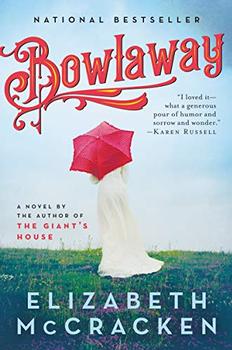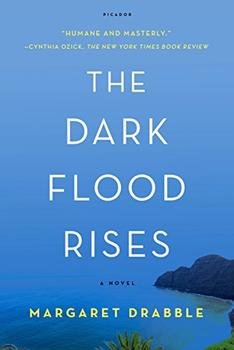Summary | Excerpt | Reviews | Beyond the book | Read-Alikes | Genres & Themes | Author Bio

Each seemingly separate chapter of Night of Fire is a gem - perspectives on life and death, love and loss, time and truth, and God. The novel reads like a collection of eight contemporary short stories that form a cohesive whole. We meet a landlord more interested in the ways of the cosmos than in the individuals towards whom he has duties; a failed priest who harbors an ancient guilt; a neurosurgeon, self-absorbed yet beset with questions about the whole universe; and a lepidopterist who finds the rarest butterfly and love when she isn't looking for them.
We know these people by visiting places that have special meaning to them, far away from the dingy reality of their present-day lonely lives. The priest takes us to a Greek Orthodox monastery on Mount Athos, in northeastern Greece and then to his work at a heart-breaking refugee camp in Malawi, which he describes as: "...a country that was waiting to become something, or that had long ago been so, then fallen asleep."
With the lepidopterist we encounter butterfly-filled meadows in bucolic Normandy and Berkshire, and yet another character introduces us to exotic Simla and Varanasi in India. The landlord and the neurosurgeon guide us from the furthest reaches of the cosmos to the "molecular granularity of neural pathways in the brain," respectively.
The achingly beautiful descriptions of all the places, even of the crumbling house, are lyrical and sensual, meticulous in the observation of details, and attentive to revealing moods and behavior. "Somewhere in the bowels of the building, behind a damp wall, a kink in the carbonized wire had become a tiny furnace. Down this half-blocked artery it travelled to a worn Bakelite socket, and the tenant asleep in the basement...never woke. The January night was cold. Far below, the sea made an angry rasping. Inland the town showed broken threads of light where it had gone to sleep."
Thubron is probably best known for being a travel writer - In Siberia and Behind the Wall are two of his great books—and it is fascinating to engage in a different kind of travel here as he delves deeply and explores a person's inner emotional recesses. The insights are so personal that one suspects Thubron is shining light on the different parts of his own self, even when he writes from the point of view of a woman, the lepidopterist.
It's clear that Thubron worries about the nature of truth. Night of Fire repeatedly returns to the subject of memory questioning its role in identity: "He thought of the brain as he might of an unbreakable cipher. In its neurons it held the web of human identity. It was the incarnate self." While it is Walford the neurosurgeon who says this, the theme is echoed elsewhere: "...some lengths of the brain are dark, others are light. This is what causes sorrow, or relief. The brain uncoils to a destiny. That is life."
Even though the characters are unrelated, the author goes to great pains to convey the deeper connections between them, the similarities in their experiences and aspirations. He even gives them similar names, all variations of Stephen, which, incidentally, is associated with the first Christian martyr, a symbol of suffering for the greater good. Everyone we meet here has something they are ashamed of, something that has brought them joy, something that has brought them despair. They are all human in their imperfections.
Thubron reminds us that the way we meet our inevitable destiny tells us much about who we are: the neurosurgeon is angered by its unfairness; the photographer is oblivious in his addiction, but the invalid welcomes it with open arms. Beauty balances the bleakness, however, as Thubron suggests that suffering allows us to metamorphose into something very different and infinitely wondrous.
I wasn't surprised to find that Thubron's mother was very ill and died shortly before he wrote Night of Fire; reactions to a parent's death is a recurrent theme. Memories, like butterflies, flutter throughout the pages, constantly reminding us of the brevity and ephemeral nature of our existence.
Live your life. Love those around you. Be kind. This seems to be what Thubron is saying. He does so in a manner so elegant and poetic that if I could just read one book this year, I would absolutely pick this one.
![]() This review was originally published in The BookBrowse Review in February 2017, and has been updated for the
February 2018 edition.
Click here to go to this issue.
This review was originally published in The BookBrowse Review in February 2017, and has been updated for the
February 2018 edition.
Click here to go to this issue.

If you liked Night of Fire, try these:

by Elizabeth McCracken
Published 2019
A sweeping and enchanting new novel from the widely beloved, award-winning author Elizabeth McCracken about three generations of an unconventional New England family who own and operate a candlepin bowling alley.

by Margaret Drabble
Published 2018
A magnificently mordant reckoning with mortality by the great British novelist.
Your guide toexceptional books
BookBrowse seeks out and recommends the best in contemporary fiction and nonfiction—books that not only engage and entertain but also deepen our understanding of ourselves and the world around us.